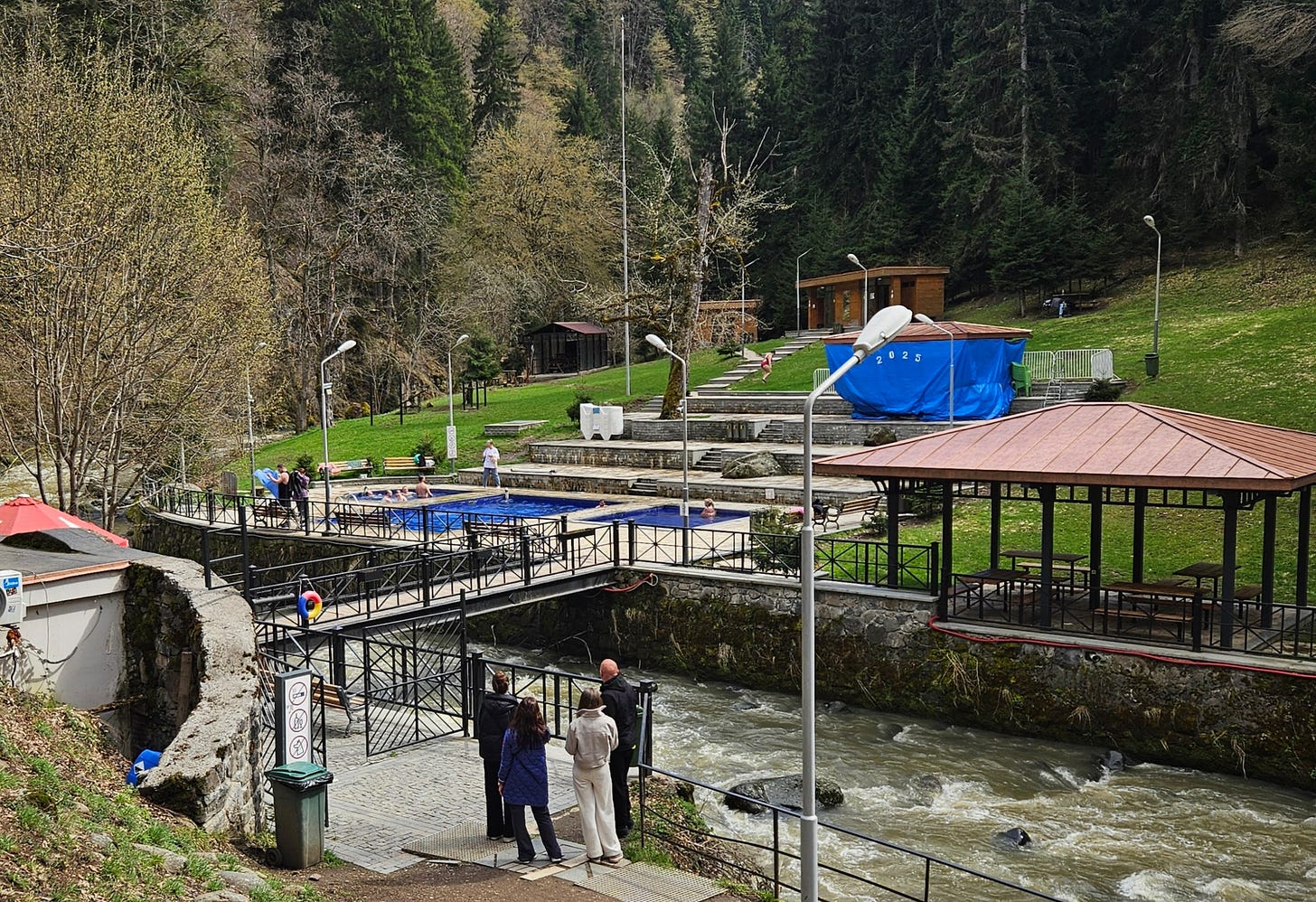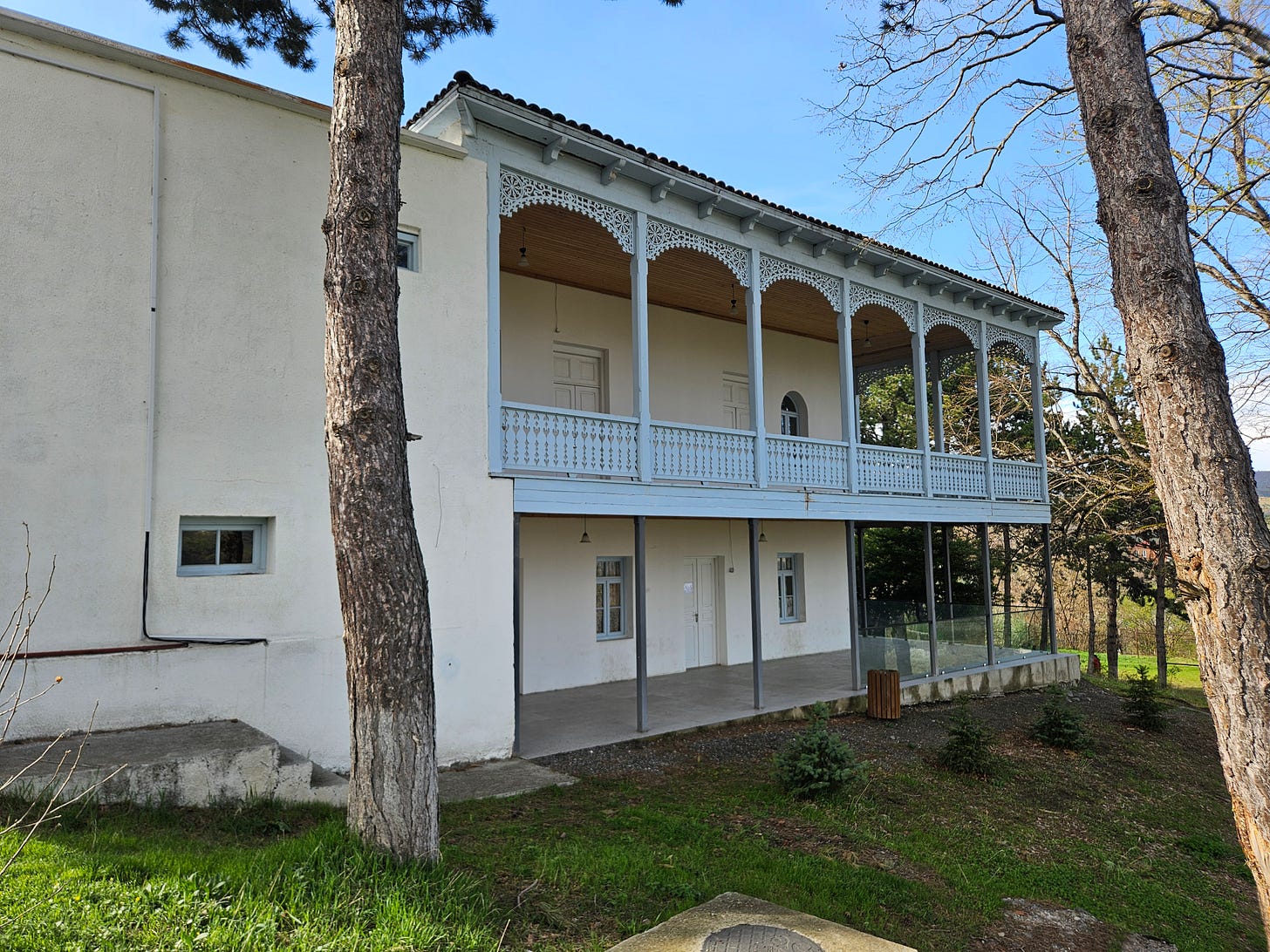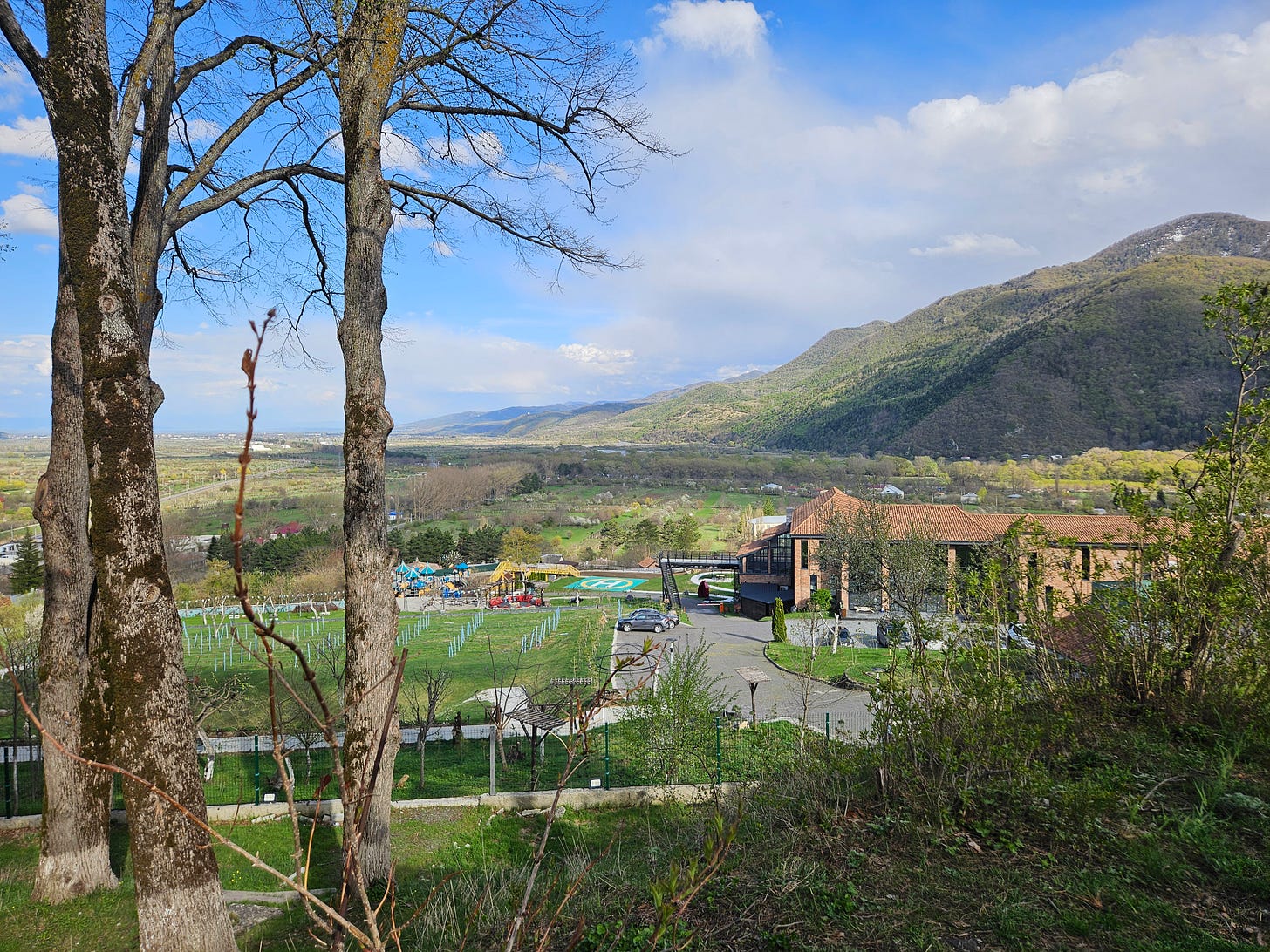Last weekend I was moderating a retreat in Borjomi (no, not civil society; no, not foreign funded), and after two intense days we were done after lunch. I wanted to hike up into the gorge, to go for a quick swim in the sulphur baths.
The hike to these baths through Borjomi’s Central Park can also be done as a leisurely jog, you can then hook up the mountain for the walk/hike/jog back, and take the joyfully creaky cable car down. At just under 8km, it is a fairy short loop, and still feels like going on a grand vacation.
I also checked Google for museums in the vicinity. Georgia holds many gems — and the Dimitri Kipiani Museum, just outside Khashuri is one such gem. Kipiani (1814 - 1887) is a fascinating figure — landowner, politician, administrator, twice deported to Russia for standing up for the Georgian language, and, as the museum informs, murdered on his second deportation. He is also, as Wikipedia proclaims, the first person to have translated Shakespeare into Georgian.
The Dimitri Kipiani Museum in the village of Kvishkheti is recently redone. It sits, splendidly, over the valley, a bit up on a hill. The museum itself is mainly a photo exhibit, with a few period pieces. When I arrived, it was already closed, but I called one of the mobile numbers displayed, and a nice lady came by, opened the door and offered a tour. (I think Leli, if my memory serves right.) She slowed down Georgian to the extent that I thought I understood 80%, though I will have I missed some nuances. She told that Kipiani’s father had moved to this area of Inner Kartli, from Svaneti. She described Kipiani’s schooling at the First School, his various activities, including teaching — and, if I understood correctly, that he was the first Georgian mayor or Tbilisi.
There are a lot of photos in the museum. A few pieces of furniture are historic, fireplaces of various types — the place feels big, and of course, they do not have so many of the authentic pieces of furniture or clothing, and it’s anyway a museum to a writer. Yet even in the relative emptiness, it is an evocative place, where you imagine people coming together to enjoy summer, and huddling around the fireplaces in winter. One display highlights the various family members, and where they ended up, down to generations that reached into the present age.
In the end, the tour was perhaps 25 minutes, and for me a fascinating glimpse into a major and important figure that I had not known much about, quite a few years older than Ilia Chavchavadze and several of the other major figures of the 19th century — and distinguished by what looks like a martyr’s death, as he stood up for people who insisted on the use of Georgian language. A facsimile of one of his major Shakespeare’s translations was on display. Leli’s tour was great. (I am not sure she speaks English, though.)
Such interesting museums are almost everywhere, in Georgia — and often we drive by, not paying attention. That is our loss, as the detours are almost always worth it. In this case, it is barely ten minutes from the main road. The view is great.
The guide pointed down towards the alley, beyond what is now a swanky hotel compound, and said — “here they could see the guests coming, so that they were prepared by the time they arrived.” As the house stands over the road to Borjomi, some guests may have used the occasion to stop over on the way to the baths, too. It felt like a moment of connection, to look out, having made the effort to visit, and think of all the other visitors who had come before, to see this major figure of Georgia’s reawakening.
At least half a dozen similar museums across Georgia come to mind, who sparkle in different ways, often run by part-time staff or descendants of the people who lived there. Each can enrich in different ways. In the coming weeks I will do short posts on them also — and also glad about any recommendations you may have.







Very cool Hans. These spots are great. Next time you are near Chiatura, Poalo Iashvili's house museum is well worth a visit.
Thought you might be interested in what Lasha Bughadze writes about Kipiani's death in Georgia Against Stalin:
"At the seminary, speaking Georgian was strictly forbidden. A harsh, militaristic discipline reigned. Yet by the late 1880s, the seminary had become a hotbed of defiance and revolutionary fervor, driven in part by reactionary policies of Alexander III. These counter-reforms marked an era of terror following the assassination of Tsar Alexander II by Narodnaya Volya — “The People’s Will.” This radical group was a precursor to the Bolsheviks and seemed to step straight out of the pages of Dostoevsky’s Demons into the streets of Petersburg.
"One such act of defiance was the murder of the seminary rector, Pavel Chudetsk, by a student named Ioseb Laghiashvili — what followed is a well-known chapter in Georgian history. At Chudetsk's funeral, Exarch Pavle Lebedev publically cursed the Georgian people, sparking popular outrage. In response, the prominent Georgian statesman Dmitri Kipiani demanded an apology. His insolence cost him dearly: he was exiled and, a few months later, murdered in Stavropol. How dare he suggest that the Exarch should leave Georgia!
"His funeral, led by Ilia Chavchavadze and Akaki Tsereteli, turned into a demonstration against the Russian government. Akaki Tsereteli dedicated his famous conceptual poem “Dawn” to Kipiani’s memory, marking the era’s first great poetic proclamation of national pride. This poem became a powerful symbol of Georgian national awakening, capturing the struggle for independence and dignity in the face of imperial oppression…
"And it was through this very poem that Jordania came to understand that Georgia was a conquered nation — “I had not heard this concept anywhere before,” he later said…"
A wonderful read!